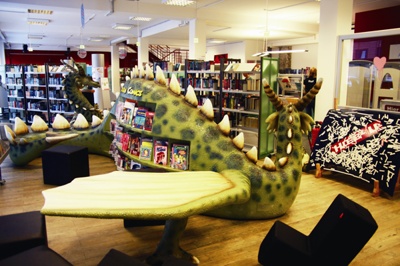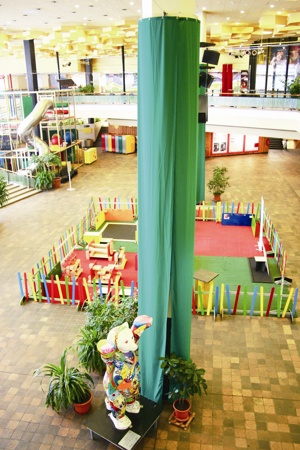Principles of leisure education

Besides Hochschulsport Hamburg, there are many other campus sports centers for university students in Germany. Nevertheless, well-equipped facilities, a good selection of programs, and efficient systems do not always lead to participation. Students’ active participation originates from Germany’s leisure education since young, in conjunction with the supportive environment. Leisure education teaches how to understand oneself, which promotes the formation of independent identity.
“Students in Europe are exposed to various experiences from early childhood,” said Professor Won Hyung-joong (Human Movement Studies). “Self-knowledge helps people realize that they are the entertainers to lead their lives. However, although Korean students are gifted with the ‘play DNA,’ knowing how to have fun, Korea’s harsh competitive society precludes this DNA from being used.”
Leisure education is the strength that underlies the success of developing the capacity to enjoy lifelong leisure. Among numerous educational methods in Germany, a library is adopted as an approach. HOEB4U, which stands for the Hamburg public library for youths, specializes in juveniles’ leisure.
HOEB4U has about 1,6000 materials on teenager’s hobbies. The genres are composed of 8,000 up-to-date comic books, teen magazines, fantasy and romance novels, and 8,000 multimedia references such as music CDs, movie DVDs, board-games, and video game gadgets. The distinctive characteristic of the library is to foster youth’s interests aside from schoolwork.
The library has no academic books but instead carries resources for hobbies. Astrid Bokelmann, a librarian at HOEB4U, spoke about the necessity of creating spaces that attract voluntary visits by students.
“Teenagers stop visiting libraries after childhood or before adulthood since they regard them as boring places,” Bokelmann said. “Our goal is to bring students back by making them realize libraries are entertaining places.”
Encouraging new curiosities and the discovery of new hobbies, HOEB4U contributes by training youths in the use of leisure that suits themselves.
“Learning various cultures through library activities gives opportunities to find his or her true favorites. Experiences will contribute to forming self-identity, and result in new motivation,” Bokelmann added.
FEZ operates about 3,000 to 4,000 activities and programs per year to promote leisure. Inside an area of 12 thousand square meters, a theater, space experience, concert halls, children’s museum, indoor pool, art workshop, mini zoo, and mini railroads have been established. Visitors can enjoy music and art performances, cooking classes, musicals and sports activities for less than 10 euros on average.

Another type of leisure center also supports students’ exposure to diverse experiences. FEZ, located in Berlin, is a place whose German acronym stands for free time (freizeit) and recreation (erholungs) specialized center (zentrum). FEZ is one of the biggest youth leisure complexes in Europe, where approximately 850,000 people visit each year to enjoy the recreational infrastructures. The center offers about 30 to 50 daily events related to various leisure fields such as school, culture, or art in a restful atmosphere with natural surroundings. The advertising executive, Marion Gusella, highlighted the function of FEZ, which is to support students learn about themselves through direct and actual experiences.
“Experiences alone do not suddenly initiate personal growth or change,” Gusella said. “But the heart-pounding derived from new stimulus enables a student to feel his or her worth. This impetus will be helpful throughout one’s life in making lifetime decisions.”
Wrapping up the story of leisure life in Germany, the core value of leisure and leisure education is to grasp the significance of self-initiated life. Professor Kim Young-jae (Chung-Ang University), a professor at the Department of Physical Education commented on leisure as a method of deviation from the everyday that brings self-discovery.
“Away from the monotonous routine, deviation brings dramatic changes and rediscoveries of oneself,” Kim said. “In other words, we view ourselves from another angle through leisure, which is an entertainment that contributes to a fruitful life,” Kim said.

